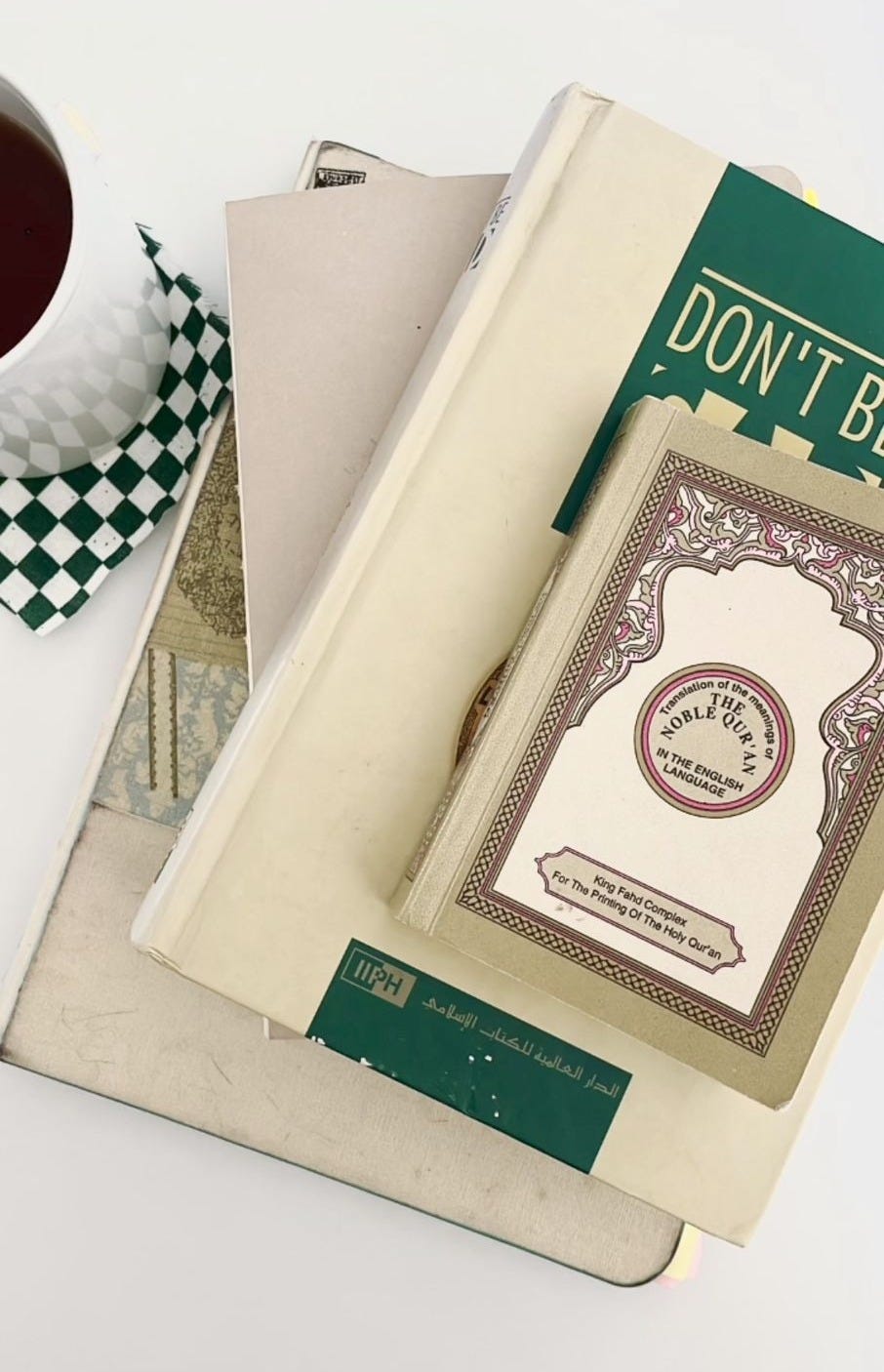As Ramadan concluded yesterday, my social media feeds bloomed with "Eid Mubarak" wishes.
I'm not Muslim (terrible Muslim, because I'm not one at all), but I've always had a deep appreciation for what religions like Islam, Christianity, and Judaism meant to do at their core—before bigots scared everyone off (they manage to infiltrate everything, don’t they?). So I did my own makeshift Ramadan. I didn't fast—let's be honest here—but I observed the dates and tried to reconnect with the deeper meaning of life that some call a relationship with God.
During my pseudo-Ramadan, three thoughts crystallized:
▶ First, our minds spend a ridiculous amount of time thinking about crap—at least mine does—with the endless scrolling we do on social media. This mental cacophony leaves little room for deeper contemplation. My brain is an encyclopedia with more references to this meme or that reel than it does fundamental truths that nourish me how lucky and privileged I am to be alive.
3 fundamental truths:
- “We are okay.”
- “There is time.”
- “There is always a way.”
▶ Second, meditating on a higher power gives life a sense of purpose that a mindless flurry of thoughts doesn't. The former integrates us; the latter disintegrates us which sounds profound and maybe a little obvious, but it is supremely easy to forget let alone understand what our purpose is when work seems like we’re counting beans and the news has nothing but bad news.
5 things I did instead:
- Planted some seeds in order to see something grow.
- Started chemistry lessons to remain fascinated by the things in front of me.
- Kept up with my pole fitness work outs to focus on developing graceful strength
- Read many longform articles and tried to learn about the world (rather than fear it).
- Mended old shoes to remind myself that everything can be fixed.
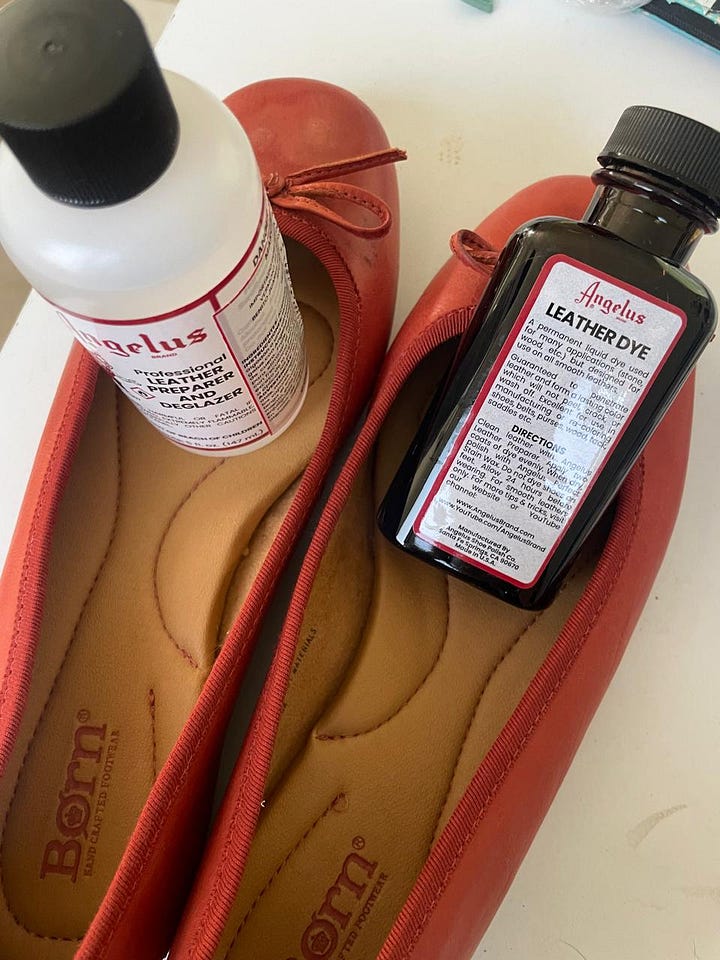
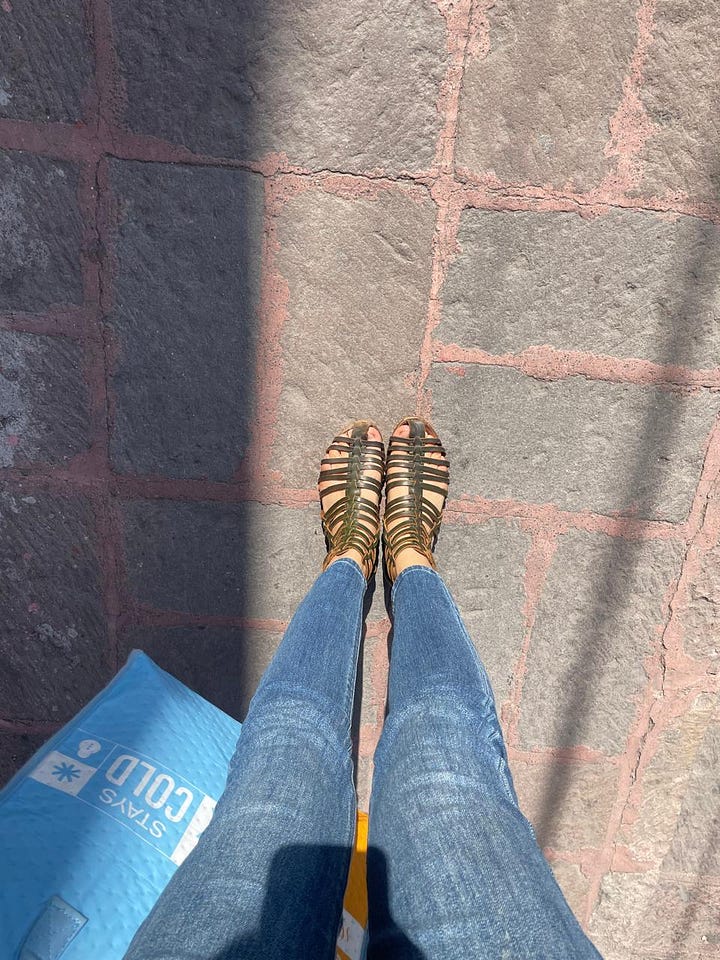
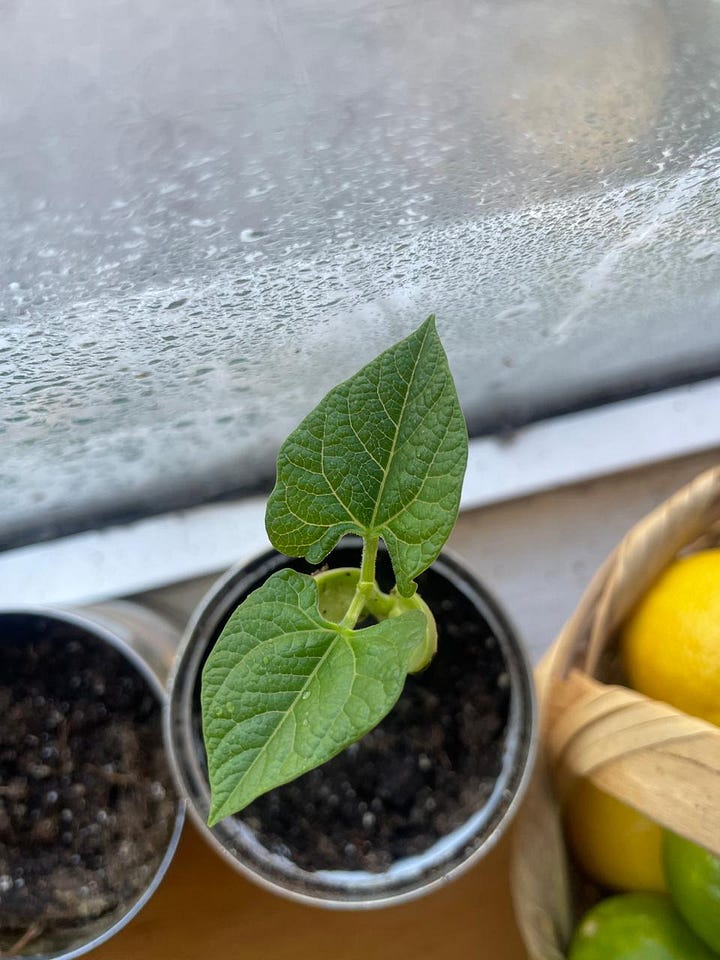
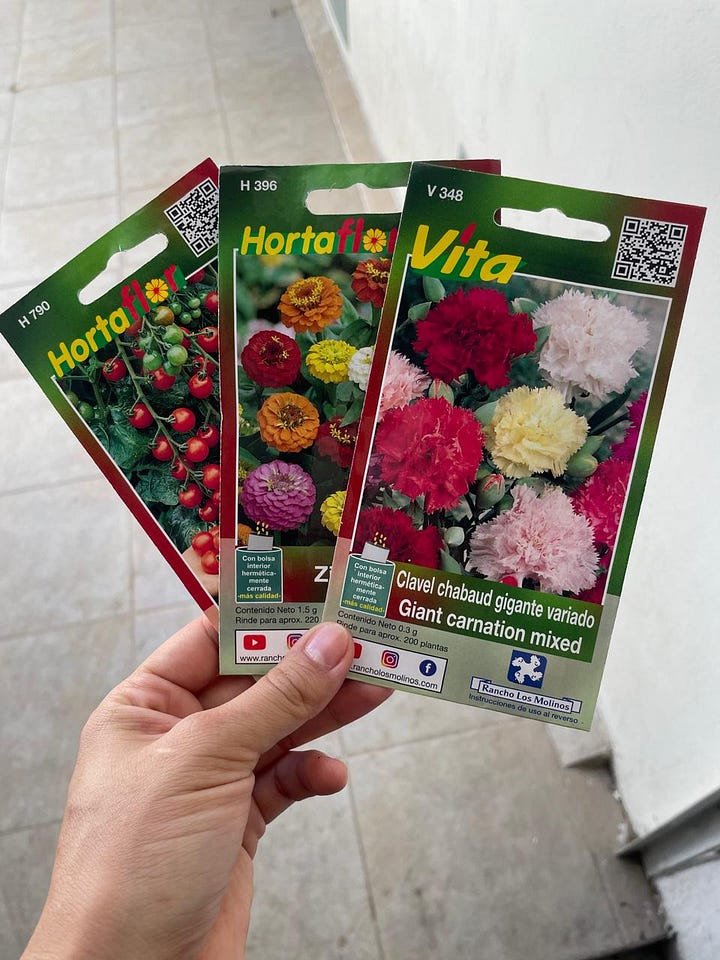
▶ Third, this higher connection fosters courage rather than trepidation when facing life's incomprehensible challenges. Faith doesn't necessarily provide all the answers, but it gives us the fortitude to live with the questions with quiet confidence and trust rather than with our usual anxious chatter. The funny thing about the chatter is that always tries to prove rather trust. The Islamic belief of tawwakul really helped here.
3 reflections to trigger courage through tawwakul:
- “I will do my part and leave the rest up to God.”
- “I don’t need to know the answer.”
- “I will be fine whatever the answer turns out to be.”
What has always fascinated me about Abrahamic traditions is their common emphasis on courage through surrender to something bigger than yourself. This essential courage allows one to face uncertainty without being paralyzed by it. I think at the core of every religion is that— be good to yourself and others and live life courageously by facing life’s uncertainty with (God-given?) confidence.
It's a practice and a battle to be won every morning, of course. I don’t presume to say I have it figured it out either. These are reflections that I will probably forget tomorrow or probably as soon as I hit publish and go make myself another cup of coffee, which is probably why some believers fight this good fight in their minds up to five times a day as a continuous choice to reorient toward love rather than fear because:
Fear and love cannot coexist in the same space.
Where one flourishes, the other withers. Where fear constantly fills our minds with catastrophic scenarios, love sits in quiet confidence, requiring no justification. Have you noticed how fear causes you to contract while love encourages expansion? When was the last time you caught yourself choosing one over the other? How do you reconnect with what matters when life gets too noisy?

